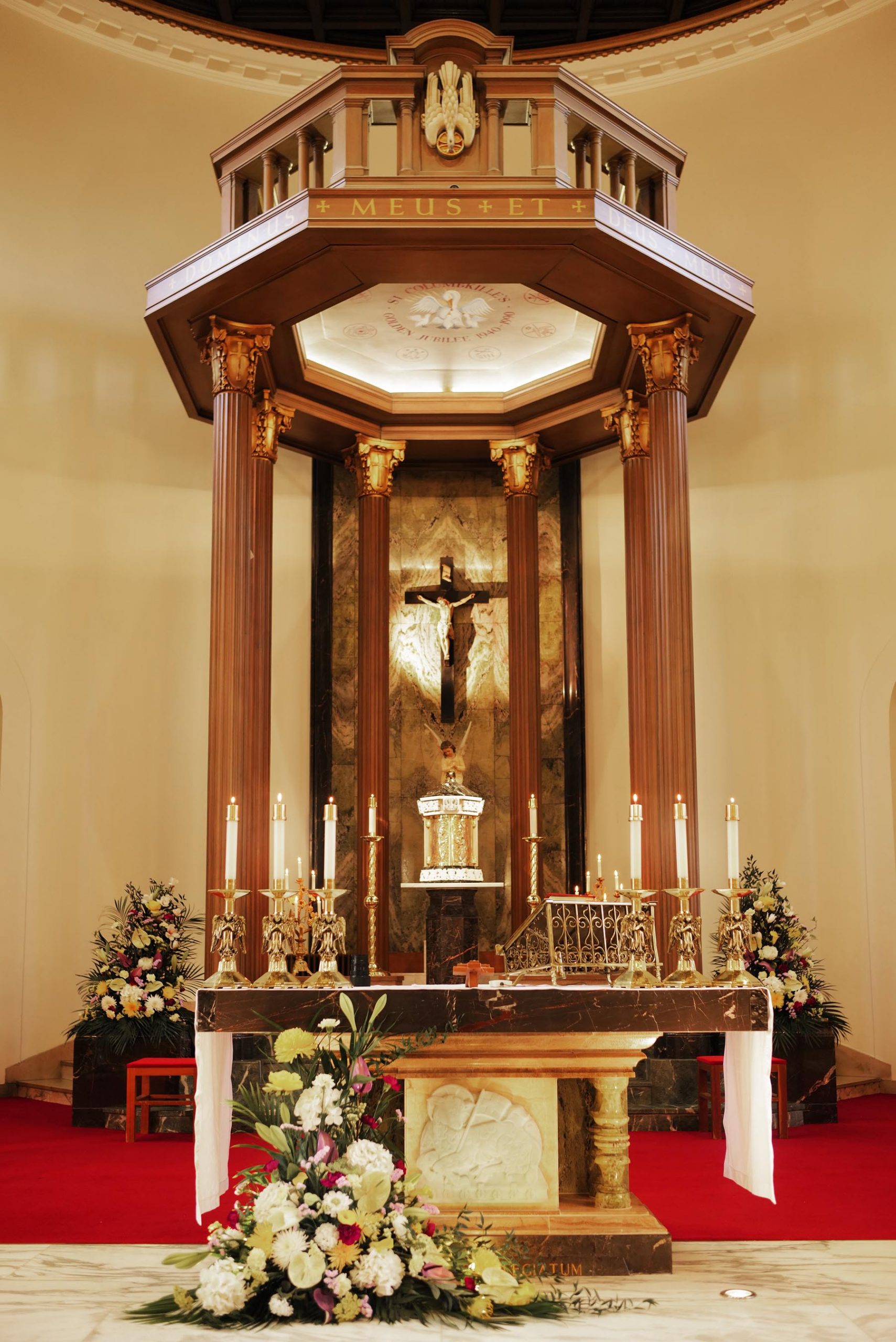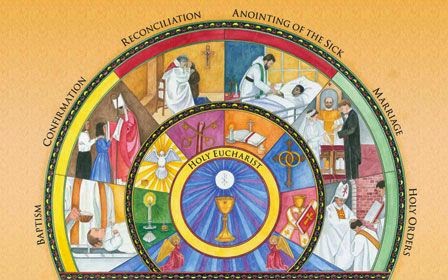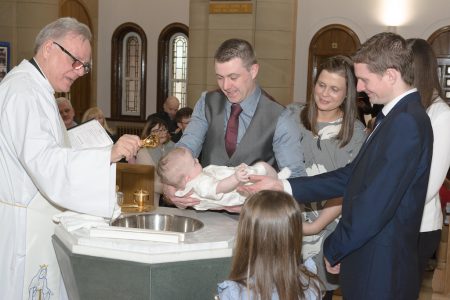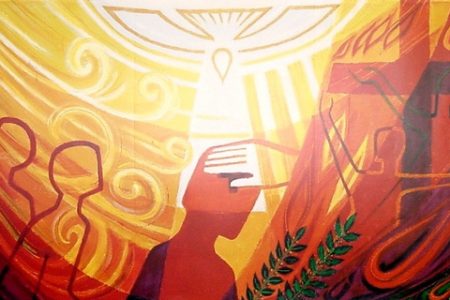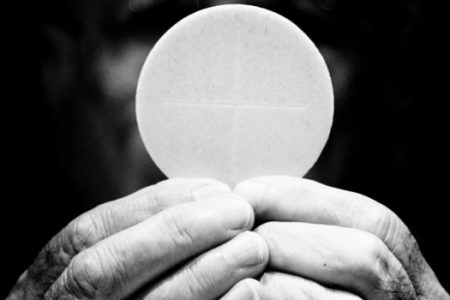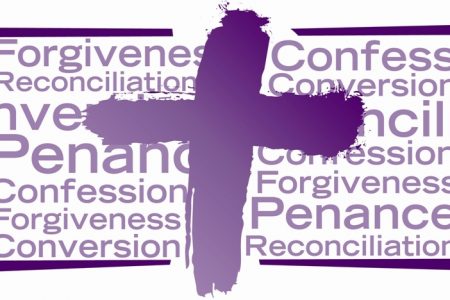HOW WE CELEBRATE THE CHRISTIAN MYSTERIES
We celebrate the Christian mystery in the Liturgy and the Sacraments. Through the Sacraments the Holy Spirit makes available to us the mysteries of God’s revelation in Christ. The saving gifts of Christ’s ministry are encountered in the Liturgy and are available to us. This is evident in the Sacraments of Initiation (Baptism, Confirmation, the Eucharist), the Sacraments of Healing (Reconciliation and the Anointing of the Sick), and the Sacraments at the Service of Communion (Marriage and Holy Orders). Through the Sacraments, God shares his holiness with us so that we, in turn, can make the world holier.
Various aspects of THE SACRAMENTS, as outlined in the Catechism of the Catholic Church (CCC) can be explored below.
The Celebration of the Paschal Mystery of Christ (CCC 1076-1209)
Last Introduction to the Celebration of the Liturgy in the Sacraments During his earthly ministry, Jesus preached and taught with authority and performed powerful healings and miracles through which he forgave sins and healed the wounds of sin. In the Sacraments of the Church, Christ now continues...
Baptism: Becoming a Christian (CCC 1210-1284)
Baptism is the First of the Sacraments of Initiation From the first moments of Christianity, new members were received into the Christian community through sacramental rites of initiation. The catechumenate, developed by early Christians during the first four centuries of the Church’s existence...
Confirmation: Consecrated for Mission (CCC 1285-1321)
Confirmation is the Second Sacrament of Initiation The Holy Spirit, the third person of the Trinity, is the living presence of God in our lives promised by Jesus. The Holy Spirit strengthens our Christian witness so we may become the living reflections of Christ in the world. And so the Church...
The Eucharist: Source and Summit of the Christian Life (CCC 1322-1419)
The Holy Eucharist completes Christian Initiation The Sacrament of the Eucharist, the ‘summary of our faith’, completes sacramental initiation. We believe that the Eucharist is the ‘source and summit of the Christian life’ in that the Eucharist continues God’s saving actions in Jesus Christ in...
Sacrament of Penance and Reconciliation: God Is Rich in Mercy (CCC 1420-1498)
In this Sacrament of Healing we are Reconciled to God and the Church Through the Sacraments of Christian Initiation, we receive the new life of Christ. But the weakness of our human nature and our inclination to sin continues to remain and affect our lives. The Church offers us the Sacraments of...

